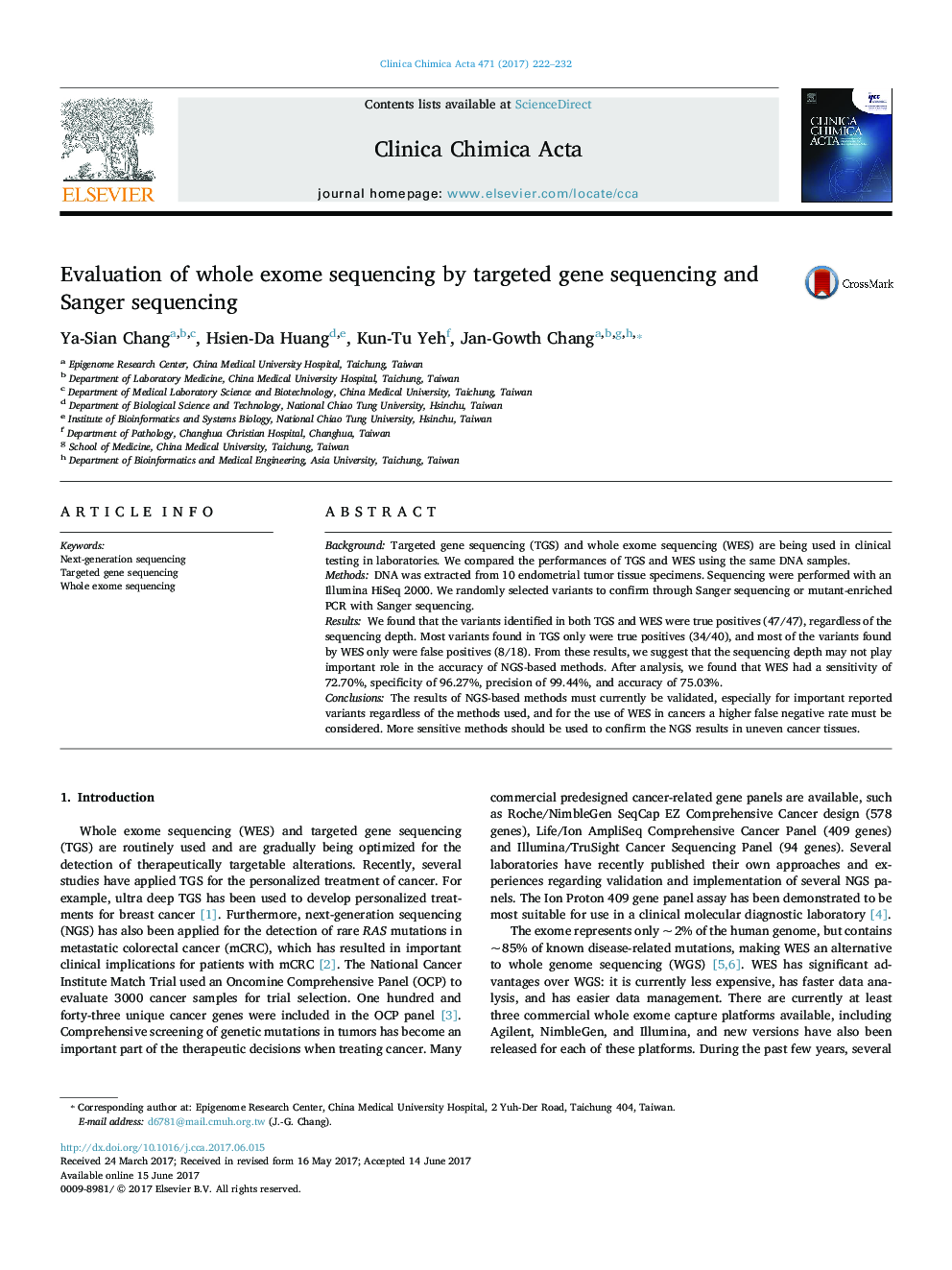| Article ID | Journal | Published Year | Pages | File Type |
|---|---|---|---|---|
| 5509647 | Clinica Chimica Acta | 2017 | 11 Pages |
â¢We compared the performances of WES and TGS using the same DNA samples.â¢The results of NGS-based methods must be validated, especially for important reported variants regardless of the methods.â¢More sensitive methods should be used to confirm NGS results in uneven cancer tissues.
BackgroundTargeted gene sequencing (TGS) and whole exome sequencing (WES) are being used in clinical testing in laboratories. We compared the performances of TGS and WES using the same DNA samples.MethodsDNA was extracted from 10 endometrial tumor tissue specimens. Sequencing were performed with an Illumina HiSeq 2000. We randomly selected variants to confirm through Sanger sequencing or mutant-enriched PCR with Sanger sequencing.ResultsWe found that the variants identified in both TGS and WES were true positives (47/47), regardless of the sequencing depth. Most variants found in TGS only were true positives (34/40), and most of the variants found by WES only were false positives (8/18). From these results, we suggest that the sequencing depth may not play important role in the accuracy of NGS-based methods. After analysis, we found that WES had a sensitivity of 72.70%, specificity of 96.27%, precision of 99.44%, and accuracy of 75.03%.ConclusionsThe results of NGS-based methods must currently be validated, especially for important reported variants regardless of the methods used, and for the use of WES in cancers a higher false negative rate must be considered. More sensitive methods should be used to confirm the NGS results in uneven cancer tissues.
